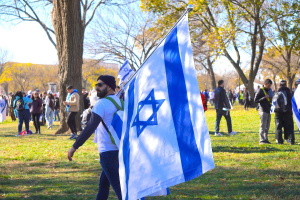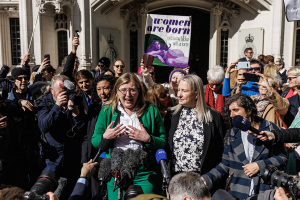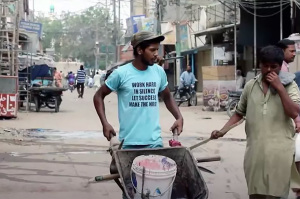Yet Another Delay in Dalit Christian Affirmative Action Case
NEW DELHI, India – The Indian government is expected to seek another adjournment – for the 19th time – in a case concerning affirmative action right of India's 17 million "low caste" Christians scheduled to be heard on Thursday.
Briefing the Cabinet Committee on Political Affairs on Monday, government's chief attorney Goolam Essaji Vahanvati said the issue posed many legal complications and currently "no decision was called for," The Hindu daily reported.
Co-petitioner Franklin Caesar Thomas, a Dalit Christian, told Christian Post that many members of the Cabinet Committee, headed by Prime Minister Manmohan Singh, were in favor of their demand, but a few of them wanted to wait due to some apprehensions.
However, Thomas said, "We trust the judiciary. The government cannot defer this hearing without a written reply on the matter."
The petition, filed by the Center for Public Interest Litigation in 2004, seeks to challenge a constitutional change passed in 1950 which grants special rights to Dalit (low caste) Hindus but does not cover the Dalits who converted to Christianity and Islam to escape the age-old caste oppression.
Considered "contagiously impure" in Hindu societies for over 2,000 years, Dalits remain the poorest of the poor, are discriminated against and face atrocities at the hands of "higher caste" Hindus.
For their uplift, the Constitution provides for reservation in government jobs, parliament and state assemblies, and educational institutions, as well as other benefits. However, the Presidential Order of 1950 assumes that non-Hindu religions do not have a caste hierarchy, and therefore do not need special protection.
The Order was later amended to include Dalit Sikhs and Dalit Buddhists – although neither of the two religions has a caste hierarchy.
At the Feb. 24 hearing, the court is likely to ask the government to state whether the exclusion of Dalit Christians and Dalit Muslims amounts to hostile discrimination under Article 14 of the Indian Constitution, which provides for legal equality.
Sam Paul from the All India Christian Council (AICC) told Christian Post it would be regrettable if the government sought yet another adjournment, as it had already deferred hearings for 18 times.
Proceedings had been delayed because of the "government's inability to make up its mind on the matter despite repeated prodding by the court," AICC's Secretary General John Dayal said in a statement.
"The government has got all the political support it needs. Following the five decade long agitation, almost every opposition party – barring of course the BJP [Hindu nationalist Bharatiya Janata Party] – has extended support to the demand of the Dalit Christians," he added in the statement.
Paul said Dalit Christians had long been waiting for "the rulers of India" to do justice "by letting them adopt a religion of their choice and not link economic benefits to their religious affiliation."
He added that most Dalits chose to identify themselves as Hindus in census records so that their families did not lose reservation rights.
The government seems to fear that affirmative action for Dalit Christians will increase the number of Christians in India especially as the 2011 Census – once in 10 years – is in progress.
Besides, reservation for three communities – Dalits, tribals and other backward classes or OBCs – account for as much as 49.5 percent of the jobs and other seats, whereas the Supreme Court has instructed that affirmative action cannot exceed 50 percent. This poses a complication because the National Commission for Scheduled Castes has said that Dalit Christians and Dalit Muslims should be given a separate quota, and not included in the 15 percent reservation for Dalits.
In its report in May 2007, a government-appointed enquiry commission led by Justice Ranganath Misra recommended that the government repeal the 1950 Order and make reservation of Dalits completely neutral with respect to religion. Later, the National Commission for Minorities and the National Commission for Scheduled Castes also backed the demand for Dalit Christian rights.
"There is no legitimate reason for the government to delay the case any further. It will have to take a decision in the next few months," hoped Thomas.





























